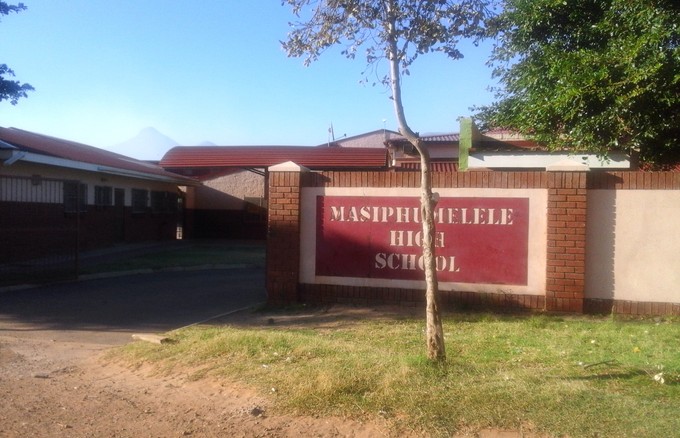
Masiphumelele HIgh School has launched a plan to bring the matric pass rate up to 84% from 48% last year. Photo: Thembela Ntongana
24 January 2017
Parents and teachers at Masiphumelele High School have launched a plan to change the matric pass rate from 48% in 2016 to 84% this year.
Last year the pass rate dropped from 71% to 48% making it the third lowest school in the Western Cape, after Zimisele Secondary School and Langa Secondary school, both with pass rates of 34%.
Various issues were said to have contributed to the problem including gang violence which left one 17-year-old pupil dead and violence in the community in which some of the pupils were involved, as well as poor class attendance and lack of involvement from parents.
At a meeting at the school on Monday, attended by more than 800 parents, a turnaround campaign to raise the pass rate to 84% was hatched.
Principal Mncedi Nelson Mafrica told GroundUp that this was the first time in almost ten years that the school received such a low pass rate.
“It was only when the school was new that we had such results,” he said.
The first matric class of Masiphumelele High School was in 2004, and for three years the pass rate was between 30% and 40%. It was only in 2007 that the rate picked up to 56%.
Mafrica says the school had high hopes for the class of 2016.
“We had a long term plan with that class, starting with them from grade 9 hoping that they would be the class to take us to the 80% pass rate. It is horrible to think that out of 224 children only 108 passed,” said Mafrica.
He said the campaign would have to be implemented in all grades, not just grade 12.
“What happened in matric is the image of what happened in the whole school.”
He said holiday camps, where pupils slept at the school to prepare for exams, and extra classes would be instituted again.
“All these programmes didn’t work last year but will have to work this year. The parents have also seen what is needed,” said Mafrica.